Do Not Start a Sentence with Which or Who Unless it is a Question. Learn how to make sentences with who, whom, use correctly.
Sentences with who / whom / whose
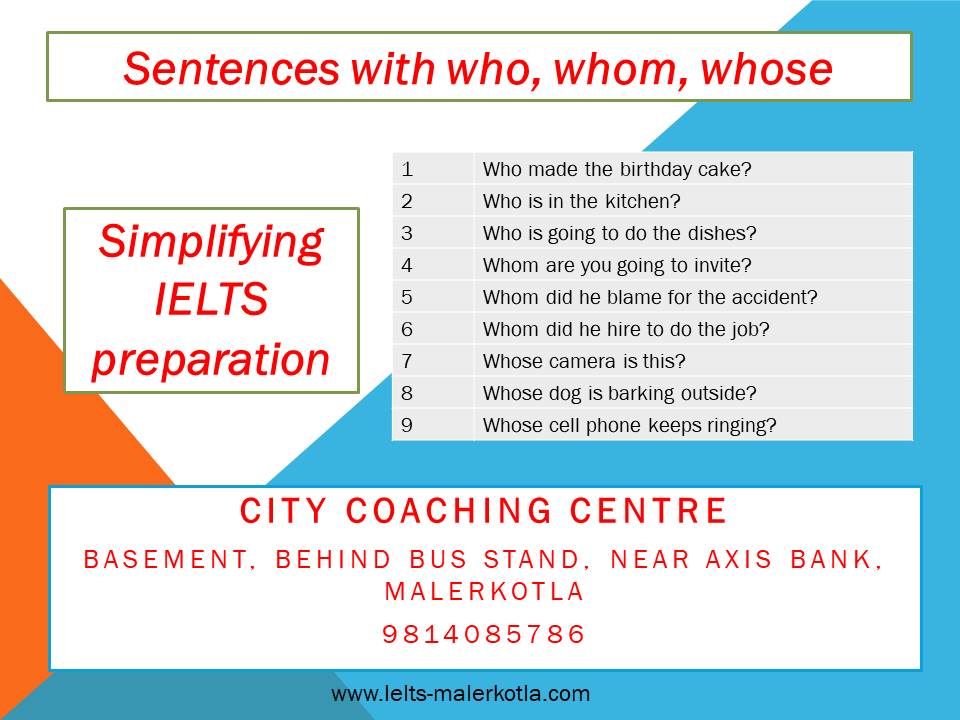
Find here a range of English Exercises, English literature, English Stories , Essays, Conversations to develop interest in English language. This section is continuously updated. This section will help you to improve English language which in turn will help you in IELTS exam.

Do Not Start a Sentence with Which or Who Unless it is a Question. Learn how to make sentences with who, whom, use correctly.
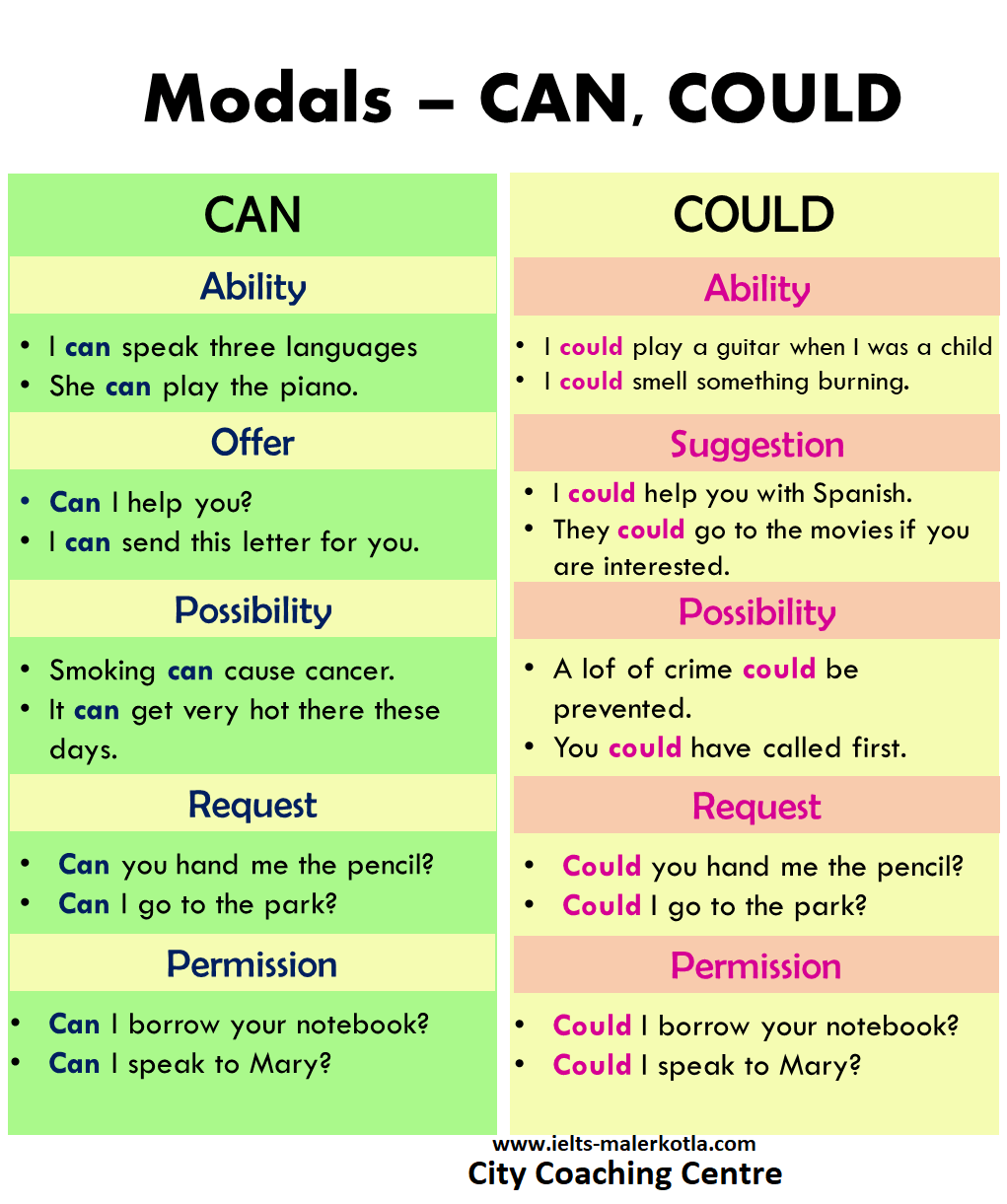
Learn how to use Can using many example sentences.Check detailed list with meanings mentioned in Punjabi. For any questions, click whatsapp icon and ask.
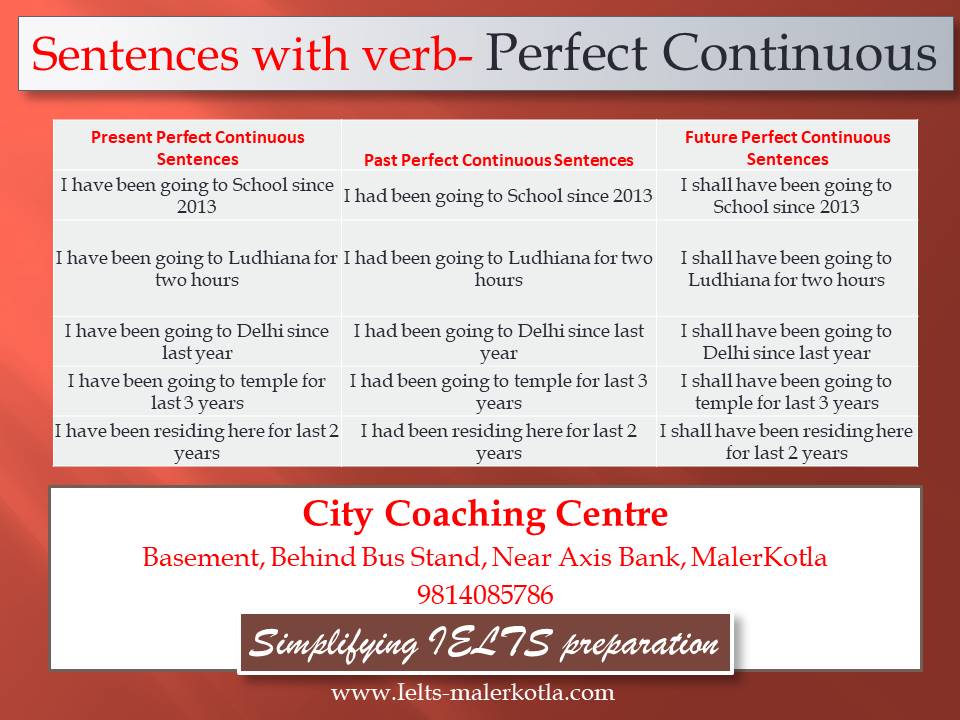
You can learn perfect continuous sentences so easily here. Learn how to maintain grammar accuracy in IELTS writing and speaking. Attend live classes at City for more interactive learning.
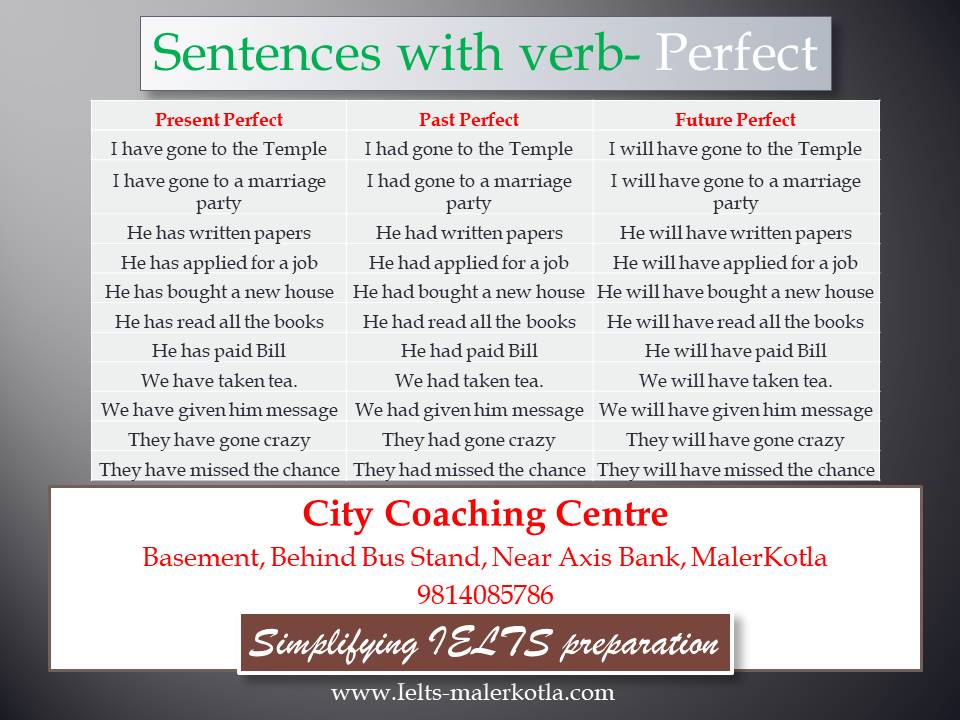
Learn Perfect Sentences.Find here detailed list of such sentences along with explanation in Punjabi.
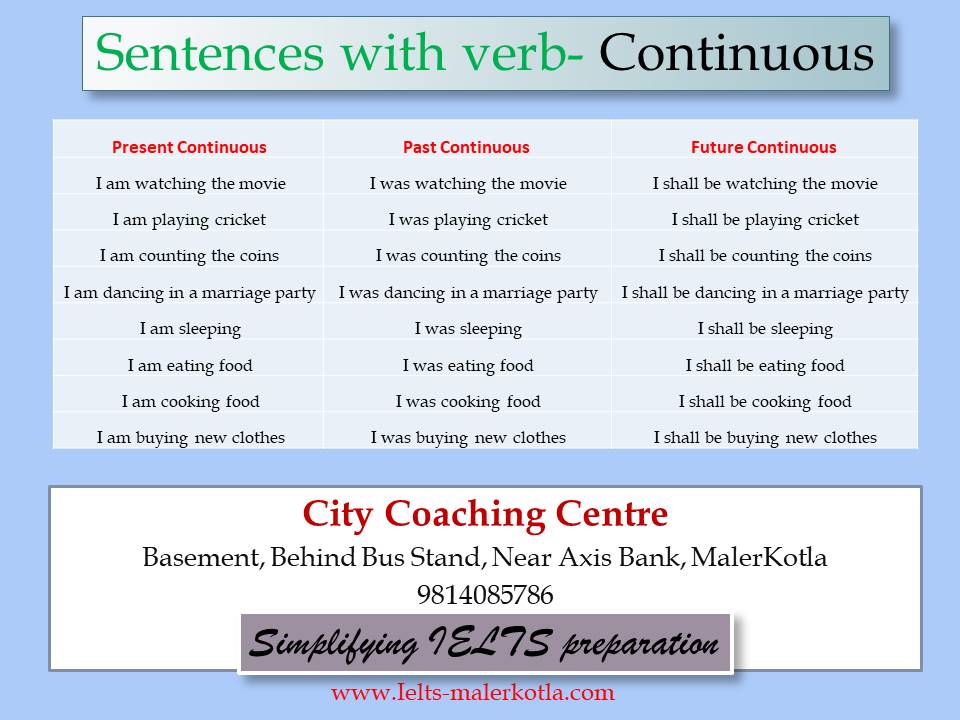
These are very common type of sentences, you should be able to use these sentences accurately for higher scores in IELTS.Learn how to form these sentences.
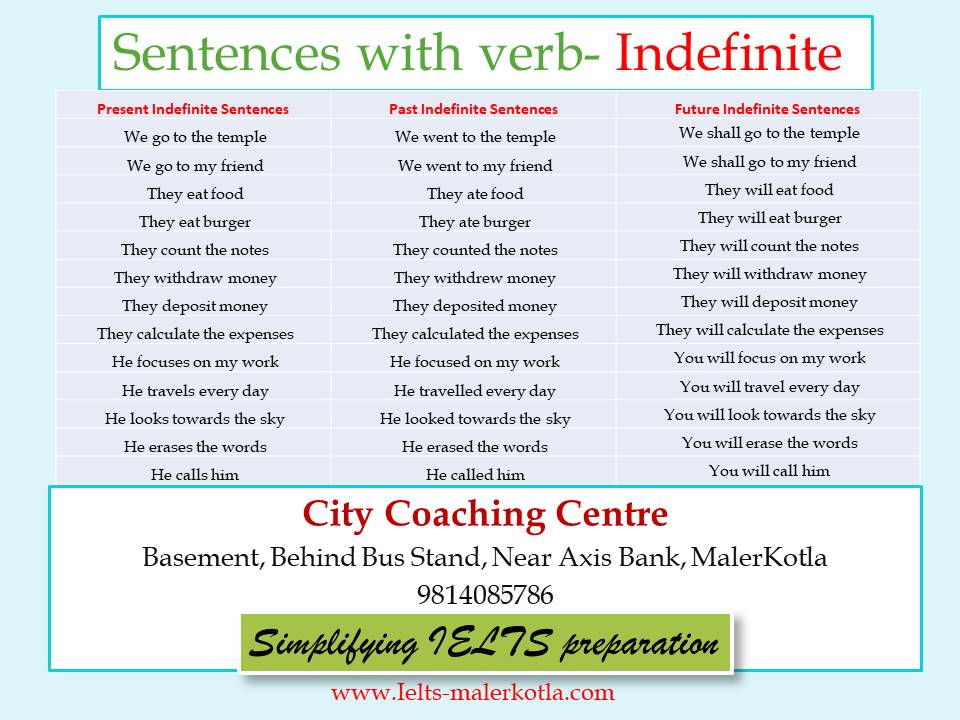
These are the most common type of sentences in any language which tell about habits, routine or repititive works.

Sentences without Verb- has/have /had. Example: I have a book
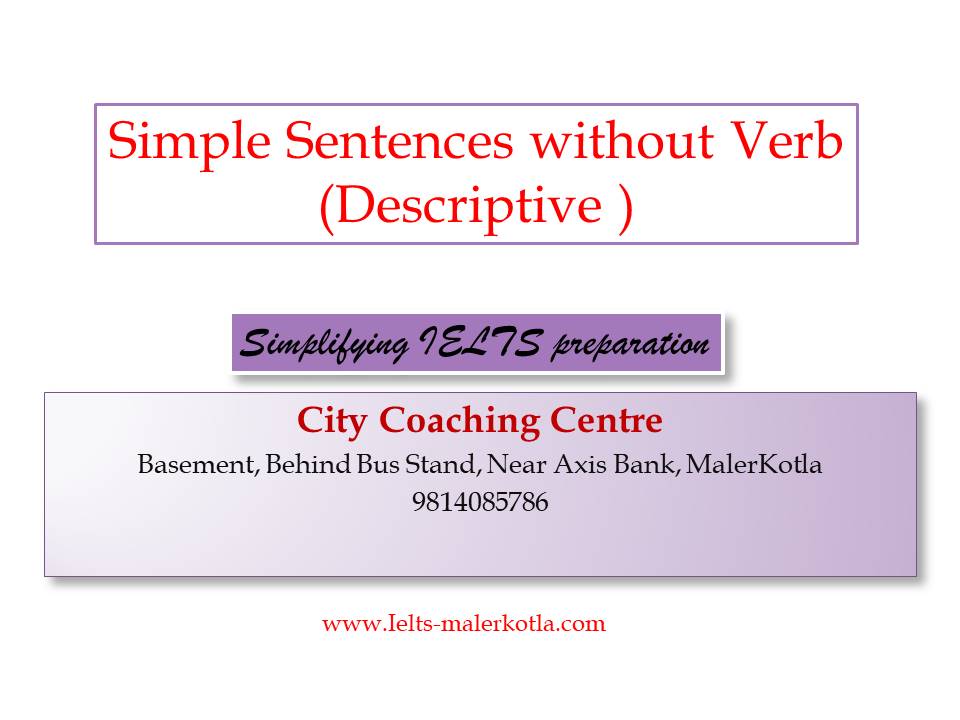
These are a type of sentences without Verb.These are also called descriptive Sentences because they describe something or someone or a group. I have tried to include simple sentences ,not longer ones for better understanding of basics of structural English.
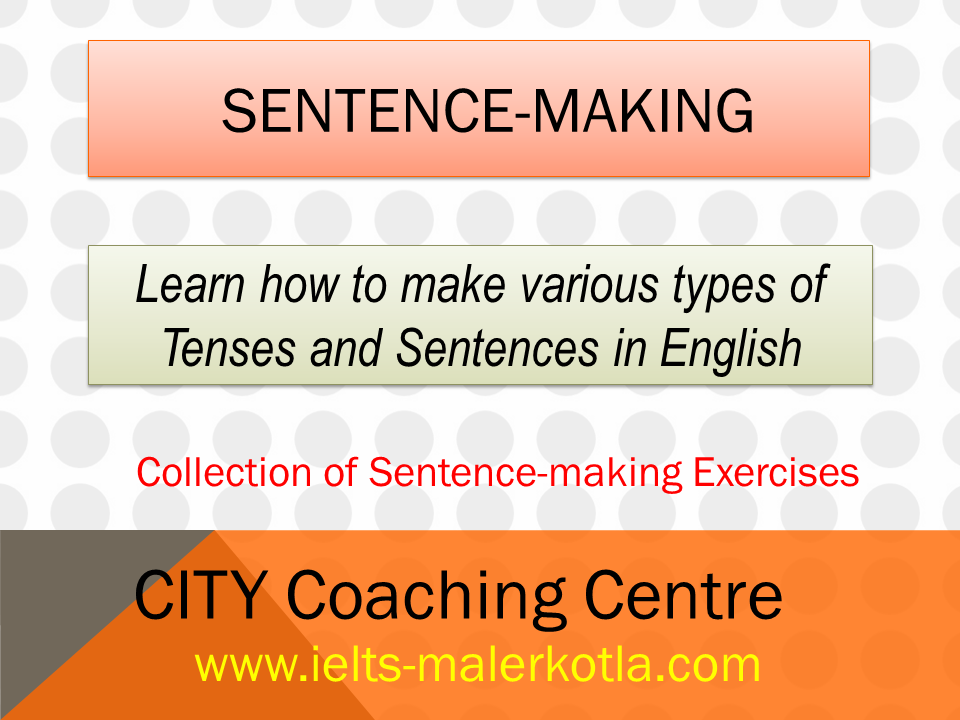
Various types of sentences can be made depending upon presence of verb, tenses, active or passive voice, direct-indirect sentences or conjunctions.Here, you can deepen your understanding about sentences and you will learn to make better sentences for higher scores in IELTS.
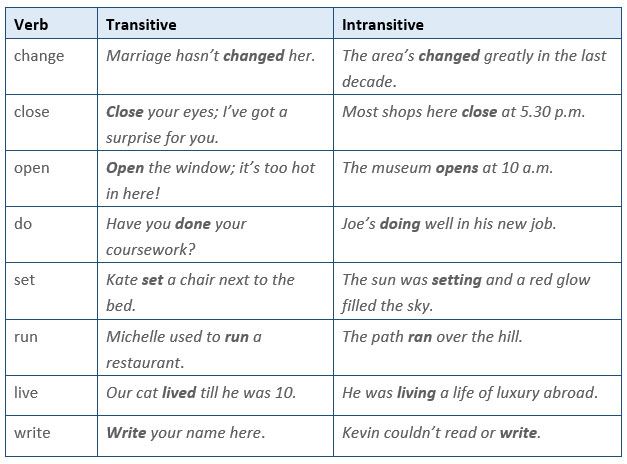
A transitive verb is one that is used with an object: a noun, phrase, or pronoun that refers to the person or thing that is affected by the action of the verb.Read more about transitive words.
copyright